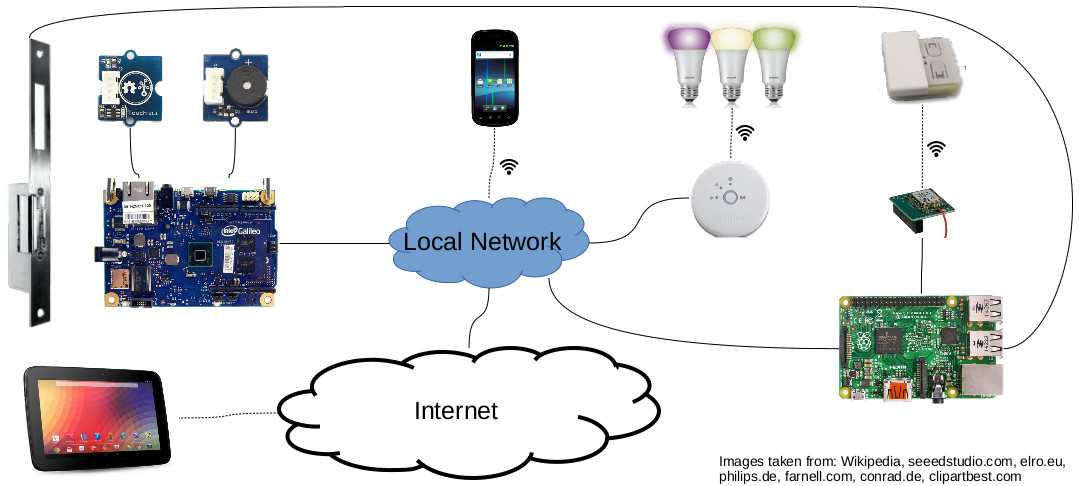Hardware for the Internet of Things (IoT)

A (very) smart doorbell (vector image here).
For the current kits I use for teaching, check out this steadily updated docoment on google drive: hardware document on google drive
Navigation
If you are just getting started or want to prepare a class, go to Development Kits and pick something appropriate
Introduction
Here are my recommendations for IoT development (and also production) hardware. Prices and parts getting so small that several of these parts are also usable in professional ans end user products.
The links are respective affiliate links to Ali Express, Amazon, eBay and some special electronic shops. Usually, you get the cheapest prices at Ali Express, but I provide also only slightly more expensive links from US resalers. If you like the service, please purchase through these links. It is unlikely that you find cheaper versions (including shipping cost) of these products elsewhere. Should you find them please let me know and I will try to offer an affiliate link for these too.
Development Boards
-
Wemos D1 Mini.
Currently my favorite: cheap (<$3), lots of features (wifi, ftdi, voltage conversion, power management, 8 gpio, i2c, spi), stable, available in huge quantities, powerful, does only need cheap usb-micro power supply (or battery or/and cable).
description | shop x1 | shop x10 | shop US x1 | shop US x10
-
Espresso Lite v2.0 ($6 to $10)
Personally my first experience with an ESP8266 development board. Designed by William Hooi with an educational background and mission.
nodemcu devboard ($4)
Huzzah and Huzzah feather ($11 or $15)
WIO Link ($10)
-
Raspberry Pi Zero (for $5) and Zero W (for $10).
Especially the Zero W would be an amazing IoT board if it would be available to buy for professional projects for the advertised price. It is very hard to acquire and usually only in very small quantities and only for private entities. Even hard to acquire for an educational setting. So only relevant for the Hobbyist. Sometimes it is resold on Amazon for around $20 to $25 including other accessories. I will provide corresponding shopping links here.
Its strong community is though a huge plus. It is also a full sized computer and can be used not only to control sensors and actors but also to build routers, gateways, or multimedia stations.
It needs an extra SD-card for the OS and any data to save, a strong (2A) power supply. It is hard to be run from battery as it does not implement a real power saving mode.
description | shop
-
Raspberry Pi V3
With $30-$40 a little on the pricey end, but more easily available. It is also more powerful as the Pi Zero, so that it can be easily used as a simple Desktop replacement.
-
Orange Pi Zero ($10 incl. shipping)
There are plenty of Orange Pi Zeros and they seem to have a lot of different variants. However, in this context mainly the Zero and the IoT version is interesting. If you want to know more about the other boards, check out this youtube channel: MickMake testing Orange Pis
Orange Pi IoT ($14 incl. shipping)
Extras
Power supplies
USB Cable
SD cards
Home Automation Applicances for Developers
-
SonOFF (also based on ESP8266)
two versions (one meters also power)
Philips Hue